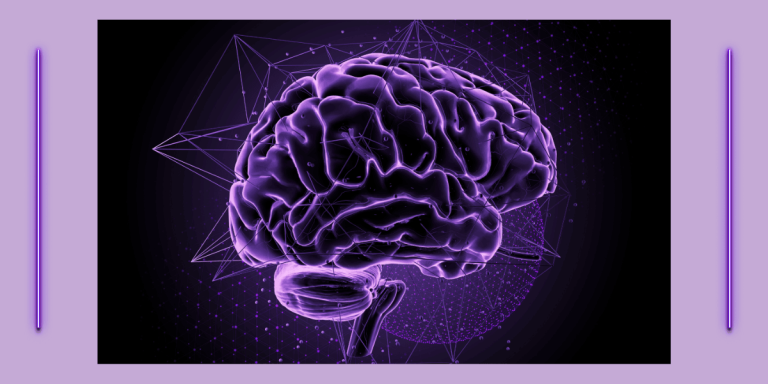“Coping with Surgical Menopause Anxiety”
Table of Contents

Introduction
It’s no wonder why women have trouble coping with surgical menopause anxiety. There are many symptoms and women are given little information.
Natural menopause typically happens at age 51 and a woman can be in perimenopause for many years prior to menopause.
Surgical menopause is when a woman has her reproductive organs removed either for cancer prevention, endometriosis, or other reasons.
Once both of her ovaries are removed, a woman is immediately in surgical menopause. No gradual symptoms coming on, no warning. It happens abruptly, full on, and all at once.
Read my article on Natural vs. Surgical menopause
600,000 hysterectomies are performed every year and 300,000 oophorectomies are also done every year. That’s 300,000 women who will be in surgical menopause every year!

I was put into surgical menopause in late 2019 and the above was basically what happened to me. I want to help other women who are or will be in surgical menopause, understand why their anxiety might be worse or maybe even new to them and how to better cope with their symptoms.
Understanding Surgical Menopause and Anxiety
When the ovaries are removed, there is an abrupt cessation of hormone production, most importantly, estrogen. This instant reduction really affects the brain chemistry, thus our moods and emotions. It also affects our sleep and this causes even more anxiety!
There are a plethora of symptoms that I could list, but for the sake of this article, I’ll only talk about the symptoms specific to anxiety. They are:
Heart palpitations and fast heart rate
Shaking and tremors
Dry mouth, sweating, and chest pain, which is the physical manifestation of stress and anxiety.
Panic attacks, caused by severe anxiety. I’ve had a couple of these and they are SCARY!
Biologically, the massive drop in hormones, mainly estrogen, causes chaos with our neurotransmitters in the brain. When these are disrupted, it impacts cognition, sleep, and our moods.
Psychologically, the whole experience of surgical menopause is stressful. From weight gain, the onset of ALL of the symptoms that you weren’t told about, to body composition changes. These can result in poor self/body image.
All of the above issues most definitely cause anxiety and worry, which if not dealt with, can heighten the severity of the symptoms that you’re already having.

Recognizing Surgical Menopause Anxiety Symptoms
Physical symptoms (heart palpitations, shortness of breath, sleep disturbances)
Emotional symptoms (excessive worry, mood swings, feeling overwhelmed)
Cognitive symptoms (racing thoughts, difficulty concentrating, short term memory problems)
Anxiety is a part of life and there are going to be things that arise like surgery, illness, death of a loved one, or financial stress. Having some anxiety during situations like these is perfectly normal. This type of anxiety can be worked through in steps/stages and will pass with time.
Clinical anxiety or anxiety disorders are when one is in a seemingly constant state of anxiety that isn’t linked to a particular stressor. Clinical anxiety doesn’t go away without intervention and this is the time that one would need to seek out professional management in the form of a general doctor or trained counselor.
Medical Management Approaches
There is much to be said about the use of HRT, (hormone replacement therapy,) and if you’re eligible and able to use it, it can help significantly with anxiety. You can read more about this subject in this post.
Some non-hormonal medications that you could take for anxiety would be SSRI’s or SNRI’s. These include names like Effexor, (venlafaxine,) escitalopram, (Lexapro,) and paroxetine, (Paxil.)
There are also benzodiazepine medications like Lorazepam or Diazepam. In my opinion, these would be best used only in the short term, as they are highly addictive and require a titration to stop taking if you’ve been using them for a long period of time.
A good non-narcotic substitute would be Buspirone if you need something long term.
Clonidine: This medication is used for blood pressure and hot flashes, which in my opinion cause anxiety.
PLEASE NOTE: I am not a doctor and none of the above should be used as medical advice. However, I have used Benzodiazepine medication for quite a long time and 7 months ago, I was able to taper down, (medically assisted,) and quit taking them altogether.
Please ALWAYS talk to your physician before starting ANY new medication.

Complementary Approaches:
Gabapentin: This can be used for anxiety and hot flashes.
Beta-blockers: This medication is normally used to lower blood pressure and heart rate. It can also help with anxiety.
Pueraria mirifica: Thai herb that has phytoestrogen effects but could be safer for cancer survivors like myself.
NOTE: Always make sure that you check with your doctor and educate yourself on drug interactions and any side effects of ALL medication that is prescribed to you.
Self-Care Strategies for Managing Anxiety
Sleep is one of the most important things you could do that will give you the most in return. When I don’t sleep well, I am NOT okay the next day and I remain NOT okay until I catch up.
If you are eating processed/ultra processed food, please stop! Processed food is so damn bad for our bodies. I used to eat those foods myself and when I finally took the time to learn what all of the ingredients were and what they did to my body, I made up my mind to stop.
Stress reduction techniques like deep breathing and progressive muscle relaxation, (this one’s my favorite!)
Lay on your back, hands by your sides, starting with your head, go through every single part of your body and if it’s tense, notice what it’s doing, then gently relax that area, then relax it even further and further still.
With experience, you can get really good at quickly relaxing any part of your body. It’s always interesting to me how some areas are always tight, like me with my shoulders. You might just be surprised at how this will help you fall asleep!
Here’s an article with more information.
Here are a few less conventional techniques for mindfulness and meditation.
Vagus Nerve Toning:
Gargling, humming, or cold water on your face that directly stimulates the vagus nerve to activate the parasympathetic nervous system.
Body Scanning:
Systematically paying attention to different areas of your body, noticing if there is any tightness, tension, or pain. You’ll become aware of how your body responds to stress and how to quickly reduce anxiety before it becomes unmanageable.
Cooling Tech:
Clothing and/or devices of different types that are designed specifically to help with hot flashes/night sweats, as these can really cause anxiety.
Here’s a link to a great study on menopause in general and how low to moderate physical activity can really help surgical menopause anxiety.
Building Your Support System
I cannot impress upon you enough how important it is to be honest about exactly what you’re going through to the people closest to you!
I have also found a few places online that I’ve subscribed to and receive their newsletters. It’s nice to get emails a couple times a week about a topic that you can totally identify with.
Also, support groups are a great way to find like-minded people who have the same questions that you do!

Facebook groups:
“Surgical Menopause Support Group,” which is one of the largest dedicated groups around. They have strong moderation and they focus on evidence based info.

“Oophorectomy, Life After Ovary Removal,” this group focuses on surgical menopause specifically from oophorectomy.
Reddit Communities:

“r/Menopause,” I really like this group, sometimes I’ve read and wondered, “where have you guys been all this time?”
Specific Population Communities:
“Military Women’s Surgical Menopause Support” is for military members and veterans.

Moving Forward: Embracing Your New Normal
Sometimes it’s easy to look at this time in your life as something to hurry up and get through.
This phase can go on for quite awhile, (for me it’s been 5+ years and counting.) You have to find deeper meaning in all of this.
Some of the positives that I remind myself of are:
No more periods!!! Big win! I basically flooded 24 days out of the month. I DO NOT miss this!!! 😊
No more pain from cramps and fibroids! I had fibroids so bad, that one prolapsed and I had to have emergency surgery!
No more PMS! I had PMDD and had one week out of every month that I raged at everything and everyone. It didn’t matter that I knew why it was happening, I could not control it!
No more migraines! This is a biggie as I had debilitating migraines often. In the last 5+ years, I’ve had 2…..
Being in surgical menopause has forced me to really take a hard look at my current health. I’m ashamed to say that I’ve lived a fairly sedentary lifestyle for most of it. This has been changing!
This time in my life has also really made me look inward and I’ve learned a lot about myself and from writing this blog, I have a whole new RESPECT for women in general and my own body!

Conclusion
Coping with surgical menopause anxiety is tough, I’m not disputing that! We just need to take this opportunity to fix and maybe get rid of some things in our lives that are causing our anxiety.
Take this time and give yourself a little grace. Also, be sure and treat yourself right because you so richly deserve it, especially in surgical menopause.
Connect with others via the suggestions in this blog and make sure that you’re prioritizing your health above all else. Because if you don’t, no one will and you know you best!
Be sure to use every single tool at your disposal and you will not only cope with your anxiety, you’ll conquer it.
Final Thought: YOU’RE NOT ALONE!!!
Would you like to share your story with me? Leave your name and email address in the form below. I would love to hear from you!!






